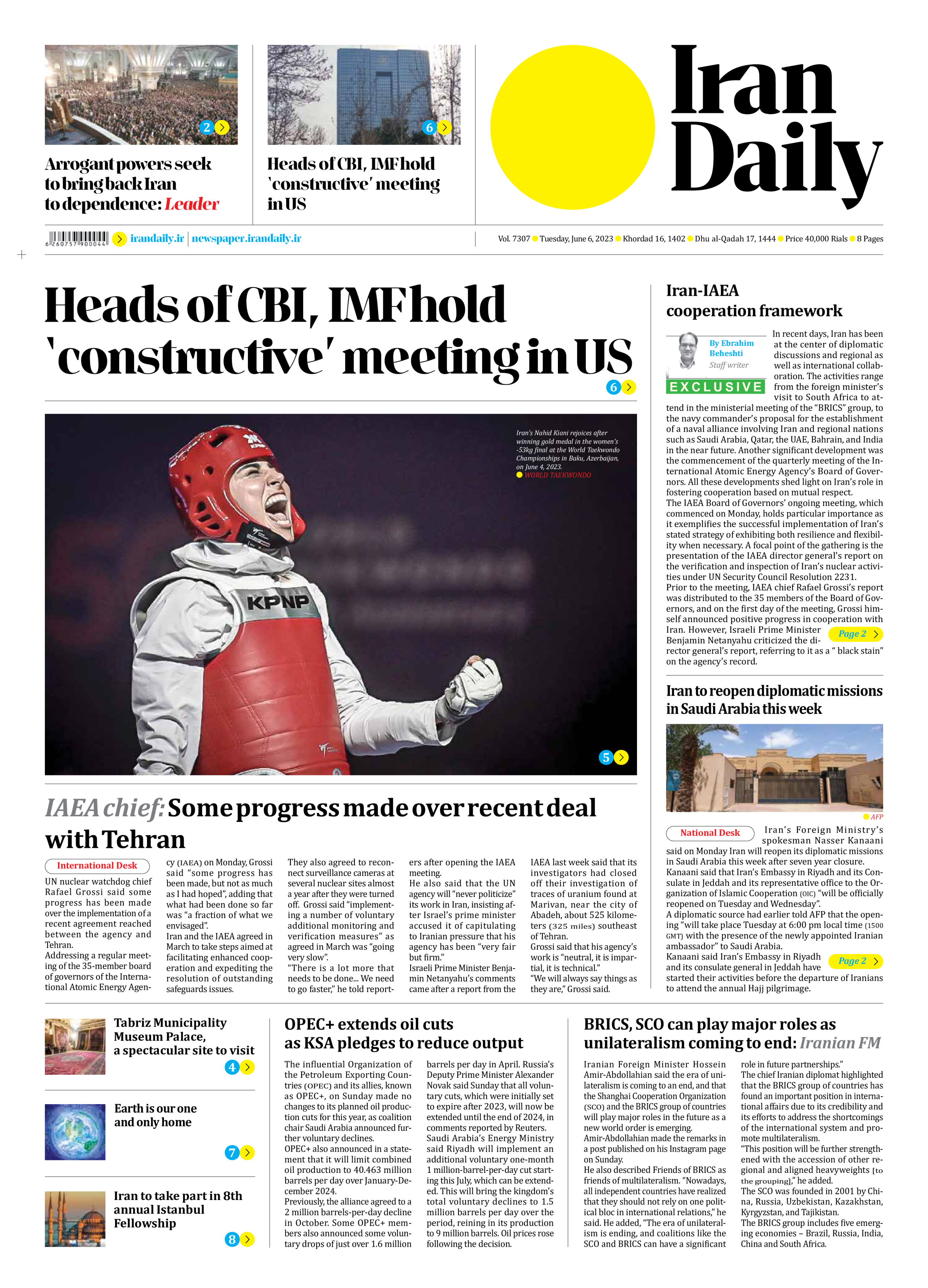
Iran-IAEA cooperation framework
By Ebrahim Beheshti
Staff writer
In recent days, Iran has been at the center of diplomatic discussions and regional as well as international collaboration. The activities range from the foreign minister’s visit to South Africa to attend in the ministerial meeting of the “BRICS” group, to the navy commander’s proposal for the establishment of a naval alliance involving Iran and regional nations such as Saudi Arabia, Qatar, the UAE, Bahrain, and India in the near future. Another significant development was the commencement of the quarterly meeting of the International Atomic Energy Agency’s Board of Governors. All these developments shed light on Iran’s role in fostering cooperation based on mutual respect.
The IAEA Board of Governors’ ongoing meeting, which commenced on Monday, holds particular importance as it exemplifies the successful implementation of Iran’s stated strategy of exhibiting both resilience and flexibility when necessary. A focal point of the gathering is the presentation of the IAEA director general’s report on the verification and inspection of Iran’s nuclear activities under UN Security Council Resolution 2231.
Prior to the meeting, IAEA chief Rafael Grossi’s report was distributed to the 35 members of the Board of Governors, and on the first day of the meeting, Grossi himself announced positive progress in cooperation with Iran. However, Israeli Prime Minister Benjamin Netanyahu criticized the director general’s report, referring to it as a “ black stain” on the agency’s record.
Netanyahu’s discontent may stem from the recent constructive approach adopted by the agency, which, unlike in the past, has not succumbed to external pressure and has prioritized technical considerations over political ones. This shift in approach became more apparent following Grossi’s visit to Tehran in March. In the past two quarterly meetings of the Board of Governors, the agency had published unproductive reports on Iran’s activities under the pressure of the United States, Europe, and Israel. Consequently, the Board of Governors had issued resolutions against Iran, which were met with firm responses from Tehran. As a result, Iran reassessed its security cooperation with the UN nuclear watchdog and switch off several IAEA surveillance cameras in its nuclear facilities. Furthermore, Grossi’s visit Iran was
postponed.
Embracing political approaches proved to be a challenging endeavor for the agency. However, Grossi’s stance during his visit to Tehran in March suggested that he was also making efforts to make up for the missed chances. Addressing a group of journalists in Tehran, he strongly condemned any illegitimate action against nuclear power plants and assured that the agency would not operate under the directives of any particular nation.
In the latest gathering of the Board of Governors, there is a notable departure from previous agendas, as there is no indication of a proposed resolution against Iran. The director general has also reported significant advancements in monitoring Iran’s activities. It appears that both the agency and the American and European parties have learned valuable lessons from past experiences, understanding that if they desire flexibility and cooperation from Iran, they must respect Tehran’s expectation of the agency performing its duties in a lawful manner, free from political pressure and influence. Through various encounters, Iran and the agency seem to have established a constructive framework of collaboration.
The outcome of the ongoing Board of Governors meeting will determine whether this framework of cooperation can persist or if it will once again falter under political coercion. The success of this approach could potentially remove a significant hurdle obstructing a nuclear agreement between Iran and the West.







